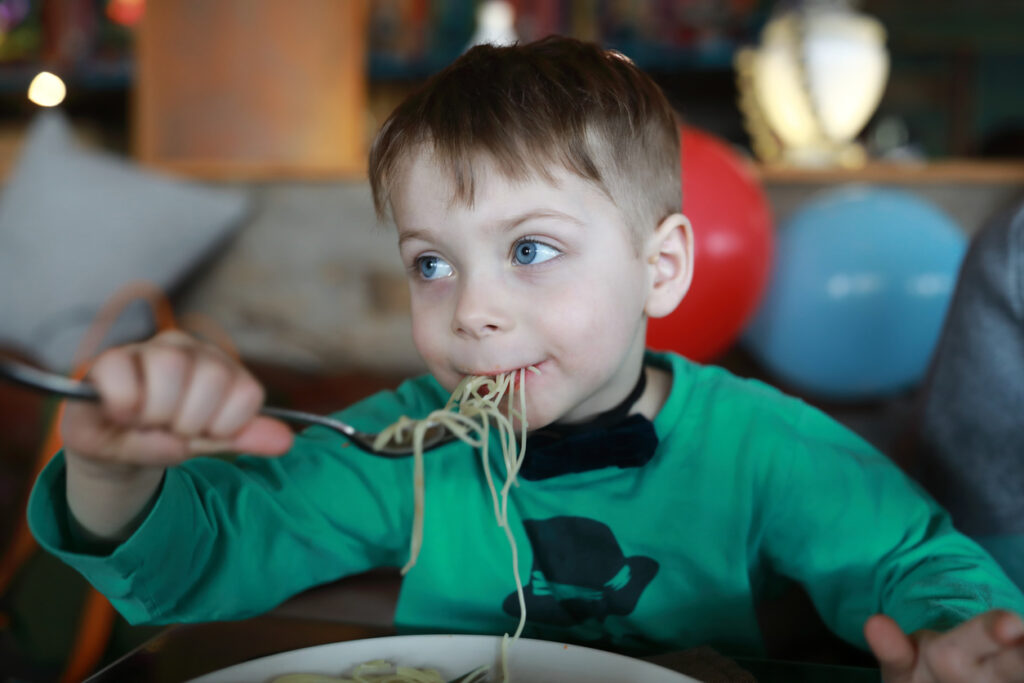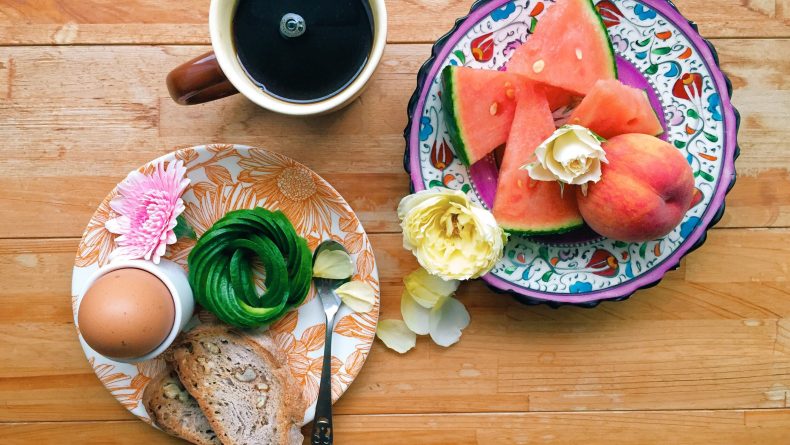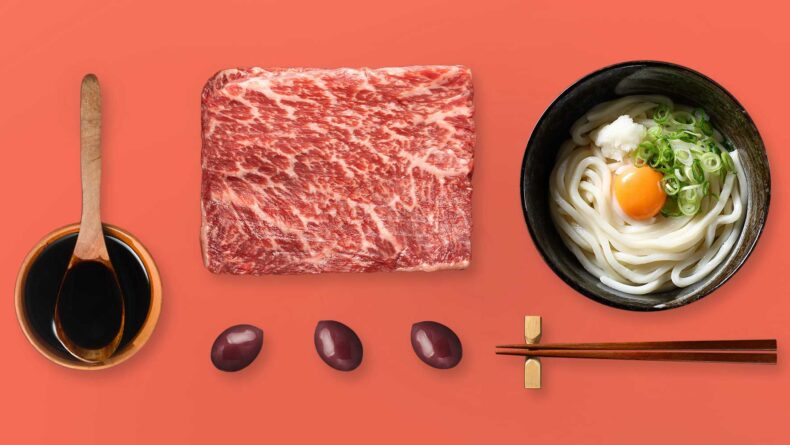6 Easy Steps to Mindful Eating
The Practice Of Enjoying And Appreciating What We Ingest
At times referred to as the "opposite of diets," mindful eating is a concept with its roots in Buddhist teachings, focused more on the experience of food rather than the actual food itself. So, without getting too much into the Zen of it all, here is a basic primer to get you started if you’re not familiar with the idea.
According to my mother, eating just isn’t what it used to be anymore. “When I was your age,” says she, “I used to eat everything.” Hopefully not everything, I muse.
Today, in our 21st century diet-obsessed society, the process of eating has become guilt-inducing.
Also, too much focus is placed on what to eat—or should I say, what not to eat—rather than on the actual experience (and pleasure) of consuming food. In a nutshell, mindful eating wants to reconnect us with the practice of enjoying and appreciating what we ingest into our bodies. It does so by asking us to emphasize our attention and attitude toward food.
The following are six of my favorite (and easy) tips to start becoming mindful while eating:
1. Sit Down
Sitting centers you. Taking four or five deep breaths before starting to eat helps also. Remember when Elizabeth Gilbert, in her memoir Eat Pray Love, declared she was in a relationship with her pizza? Well, that here is acceptable. Give your undivided attention and absolute love to your meal. Focus on its aromas, textures, flavors and more. The tanginess of yuzu (Japanese citrus), the spiciness of wasabi, the slime of natto (fermented soybeans)—noticing these details is the best way to begin mindful eating.
![image[1]-2](https://savvytokyo.scdn3.secure.raxcdn.com/app/uploads/2016/05/image1-2-1024x768.jpg)
Don’t be afraid to ask touchy questions, to try to get to know each other more. What of your food’s life before it met you? What of its childhood? And by whom was it last handled? If you’re still taking me seriously, know that not only are these questions important in life in general but also that this practice will cause you to eat slower—which in turn makes for better digestion and helps you feel more full.
2. Use a Plate
This one’s pretty self-explanatory, too. Always use a plate. Because it’s much harder to eat an entire packet of matcha (Japanese green tea powder) Oreos or those damn addictive edamame chips when you see them in plate form. The visual reality check will assist your brain with portion control. Eating with chopsticks from a plate is another great way to slow things down.
3. Chew
Just call me Captain Obvious. But really, chew! We really should chew each mouthful 20-30 times before we swallow. This is because, when it comes to digestion, mastication is crucial. It breaks down our large particles of food into smaller ones, making it easier for our intestines to absorb the energy and the nutrients. Also, the actual act of chewing releases digestive enzymes into the throat and stomach that improve the digestive process.
This is why I avoid drinking smoothies, but rather choose to sit down and eat a smoothie bowl. Though seemingly impossible with the ever-hectic Japanese work style, try where possible to sit down and chew your way through a smoothie bowl this undoubtedly hot summer rather than drinking one from a glass or sucking one through a straw, on the go. Also, because using a straw can cause you to bloat. To aid with chewing your smoothie bowl, try topping it with raw nuts, seeds and/or fresh fruit.
4. Eat Undistracted
These days, there’s always something clamoring for our attention: TV, iPhone, iPad, iPod, smartwatches, what-have-you. You’re on a date remember? So don’t be rude! Instead, do like John Legend and give your food to all of you. Checking the number of likes on your latest selfie can wait. Experts caution eating meals or snacking while distracted by our phones and/or computers can make our meals seem less satisfying. Less satisfying meals mean more “hangry” people, hangry people who will continue to snack straight after a meal. This also applies to eating “on the go,” while driving, for example.
This next bit sounds cheesy but when you think about it, it really is true: we are among the very few privileged individuals who are blessed to eat at all. Let alone, to have access to such an abundance of food. So, in a way, we are obliged to give our utmost energy and respect to our food.
5. Prioritize Sleep
Lack of sleep can mess with our moods, our ability to digest food and—red alert!— turn on obesity-promoting genes! Insufficient sleep provokes hormonal changes that decrease our satiety after eating and lowers the number of calories we burn during the day. So if you must, do like your colleagues and take a short nap at work.
6. Befriend Healthy Humans
Other people impact our eating habits, too. In 2012, researchers in the Department of Psychology at the University of Minnesota published the Friends Don’t Let Friends Eat Cookies study. It found that if two friends restricted their intake, a third friend followed suit—not only when in their presence, but also when alone. On the other hand, when two friends ate more, the third friend followed suit and—again—ate more when alone. In short, pick a friend with mindful eating habits or be the friend who eats mindfully. This is especially important during the summer season of Japanese festivals where most foods on offer are unbelievably high in fat, sugar and salt. When it comes to summer picnics and BBQ’s, make a wholesome dish to take for both yourself and your friends to enjoy.
Case in point: we’re all in this hunger game together, after all.


![image[3]](https://savvytokyo.scdn3.secure.raxcdn.com/app/uploads/2016/05/image3-1024x768.jpg)















